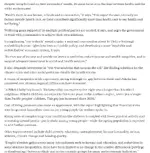Quite enjoyed that parable, very educational, I found myself identifying with your poo as the main protagonist.Sigh... I'll use an example that hopefully you can appreciate
Three Waters emcompassed drinking water, stormwater and wastewater
If I do a poo in my toilet, that poo goes down my drain and joins up with a network that is owned by Auckland ratepayers and managed by Watercare. The poo travels down the network to a wastewater treatment centre in Mangere, where, amongst other things, it it oxidised to remove pathogens before it meets the require safety levels to be deposited back into the environment in line with Watercare's resource consent to do so, which it has obtained in accordance with the RMA that requires it to consult with Iwi, and act in accordance with said RC. Watercare is owned by Auckland ratepayers and it is funded by those ratepayers to treat their poo and operate a fit for pupose network. If there is any capex or opex shortfall, this is funded by raising rates and/or taking on debt. If there are any issues with the network or Watercare, these are addressed between a democratically-elected Council that is answerable to the ratepayers, who have the ability to exert control over the asset they own to remove the poo from their homes and treat it before getting rid of it. The process has its faults but ultimately, the operator is answerable to the council, who is answerable to the electorate. As outlined in one of my previous posts, funding could be cheaper if done centrally, but there is clear control, and ratepayers at least have visilbility of how they can influence decision-making
I don't consider my poo a valuable natural resource. Far from it!!! Your mileage may vary. Nor do I consider the wastewater pipes or the sewerage that Watercare operates. Watercare is bound, like any other business, to adhere to its RC, which requires it to obtain consent from the local Iwi to operate the way it does.
You say that the Treaty requires involvement of māori over water as a natural resource. Despite me being such an ignoramus and racist (in your eyes), I agree. I also was educated on the Treaty. In none of my classes was I taught that the chiefs requested the right to partner with the Crown on removing poo from homes, taking it away and doing something with it. Imagine the scenes at Waitangi if they did! The other chiefs would have thought them crazzy. You obviously disagree however, so, in the spirit of @MaybeTop8, please provide facts to identify these individuals
That was one of the many issues with Three Waters. If Watercare needed to upgrade its pipes / treament plant / vans, it should just go ahead and do so and be answerable to the people that pay for it.
Speaking of education, as a field trip in biology, we visited the wastewater treatment plants. Interesting stuff. Despite the sewage being such a valuable resource, I can't remember any classmates stuffing into their pockets, to enjoy on the bustrip back. Your school trips must have been a bit different!
By the way, do you know who Peter Puffer is?

